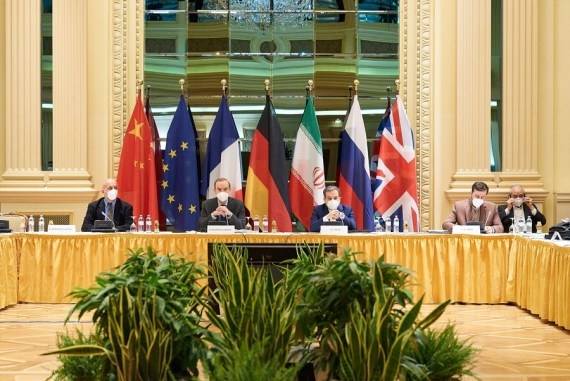The pipeline, with some 1,000 km in length, will transfer the pumped oil from facilities in Goureh to the Omani sea port of Jask…reports Asian Lite News
Outgoing Iranian President Hassan Rouhani has inaugurated a major onshore pipeline that allows the country to bypass the Hormuz Strait for crude oil exports.
The pipeline, with some 1,000 km in length, will transfer the pumped oil from facilities in Goureh to the Omani sea port of Jask, reports Xinhua news agency.
The inauguration of the Goureh-Jask pipeline “gives a strong and firm response to all plotters particularly to the US,” Rouhani said during the virtual opening ceremony on Thursday, alluding to the American sanctions, which are aimed at hindering Tehran’s oil exports.
“The US government waged war on us in two areas, one on oil exports, and the other on the supply of goods.”
“They aimed to stop Iran’s oil exports and reduce crude exports to zero,” he said, hinting the failure of the US anti-Iran maximum pressure policy.
The $2- billion project, the construction of which started two years ago, detours the strategic Hormuz Strait which has long been used as a vital passageway for oil exports of the region.
“As time goes by, the importance of this project will become more evident for the Iranians,” said Rouhani.
The oil pipeline is able to initially export 300,000 barrels per day (bpd) of crude and will reach the capacity of one million bpd once fully ready in October, according to authorities.

Iran to continue Vienna talks
Iran will continue to attend the Vienna talks to revive the 2015 nuclear agreement after President-elect Ebrahim Raisi and his cabinet take office in August, the Foreign Ministry said.
The spokesman for the Ministry, Saeed Khatibzadeh, said during an online press conference that Iran has announced its intention to continue the talks with its partners in the Joint Commission of the agreement, formally known as the Joint Comprehensive Plan of Action (JCPOA).
Iran’s policy will not change under the new administration, he said, adding that the country will return to its commitments as soon as the US returns to its obligations and Tehran verifies it.
Under the deal reached in 2015, Tehran agreed to roll back parts of its nuclear program in exchange for decreased economic sanctions.
However, Iran gradually stopped implementing parts of its commitments in May 2019, a year after the administration of former US President Donald Trump unilaterally abandoned the agreement and re-imposed sanctions on Tehran.
Between April 6 and June 20, the JCPOA Joint Commission, attended by a US delegation indirectly, held talks in Vienna to discuss a possible return of Washington to the agreement and the way to ensure a full and effective implementation of the deal.
After six rounds of talks, the parties recently said serious differences remained between Iran and the US over the revitalization of the deal.

Leave a Reply